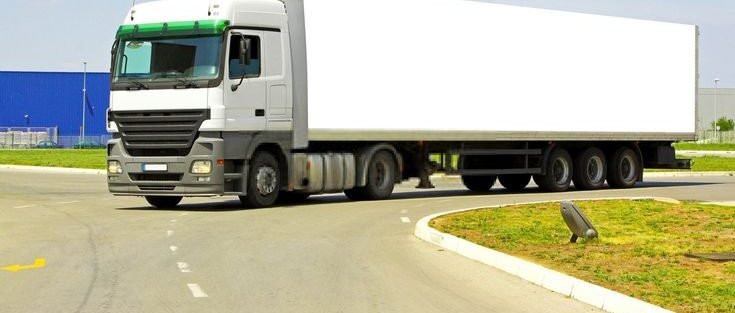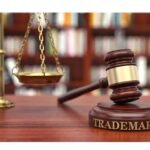How to Obtain an Industrial License in Qatar: Complete Business Setup Guide
Setting up an industrial business in Qatar is a rewarding opportunity for entrepreneurs looking to expand in one of the Gulf’s fastest-growing economies. The country’s strategic location, advanced infrastructure, and pro-business environment make it a hub for manufacturing, logistics, and industrial investments. However, before starting operations, obtaining an industrial license in Qatar is a mandatory step for all manufacturing and production companies.
This guide explains everything you need to know about the industrial licensing process, eligibility criteria, required documents, and the role of government authorities in facilitating industrial projects in Qatar.
What Is an Industrial License in Qatar?
An industrial license in Qatar is an official permit issued by the Ministry of Commerce and Industry (MOCI) that allows individuals or companies to engage in manufacturing, production, or industrial activities. This license ensures that all industrial projects comply with Qatar’s national regulations, safety standards, and environmental requirements.
It applies to businesses involved in assembling, manufacturing, processing, or modifying raw materials into finished goods. Whether it’s a small-scale workshop or a large factory, every industrial establishment must secure this license before commencing operations.
Importance of Industrial License for Business Setup in Qatar
Obtaining an industrial license in Qatar is crucial for legal and operational reasons. It not only legitimizes your manufacturing activities but also provides several benefits for investors and business owners:
Legal Authorization:
It grants official permission to operate within the industrial sector.Government Support:
Licensed industries may receive incentives, such as reduced utility rates and access to industrial land.Business Credibility:
Holding a valid industrial license enhances your company’s credibility and builds trust with suppliers and investors.Access to Financial Facilities:
Many banks and financial institutions in Qatar require a valid industrial license to approve loans or financing for manufacturing projects.Foreign Investment Opportunities:
Industrial licenses make it easier for foreign investors to establish a company formation in Qatar under the country’s investment laws.
Types of Industrial Licenses in Qatar
The Ministry of Commerce and Industry (MOCI) classifies industrial licenses into three main categories based on the stage of business development:
Preliminary Industrial License
This is the initial approval required to start planning your project. It allows you to conduct feasibility studies, acquire land, and prepare your industrial setup.Temporary Industrial License
Issued for businesses that want to start operations on a temporary basis before obtaining a full license. This helps test production capability and business feasibility.Permanent Industrial License
Granted once all conditions are met and the facility is fully operational. This license allows continuous production and commercial manufacturing activities.
Steps to Obtain an Industrial License in Qatar
Getting an industrial license in Qatar involves several procedures, but the process is straightforward when done correctly. Below are the main steps involved:
Step 1: Business Setup and Company Formation
Before applying for an industrial license, your company must be legally registered in Qatar. This involves selecting a business structure—such as an LLC, partnership, or branch office—and registering with the Ministry of Commerce and Industry.
Step 2: Submit Industrial Project Proposal
Prepare a detailed project proposal outlining your manufacturing process, type of products, raw materials, and machinery used. The MOCI will review this to ensure compliance with national industrial policies.
Step 3: Environmental Clearance
Obtain an environmental clearance certificate from the Ministry of Municipality and Environment (MME) to ensure that your industrial activities do not harm the environment.
Step 4: Location Approval
The government will evaluate your factory’s location to ensure it aligns with Qatar’s industrial zoning regulations. Most industrial operations are based in areas such as Mesaieed Industrial City, Ras Laffan, or Small and Medium Industrial Zones.
Step 5: Technical Inspection
Officials may conduct a site inspection to verify your facility’s readiness and adherence to health, safety, and technical standards.
Step 6: Issuance of Industrial License
Once all requirements are fulfilled and approvals granted, the Ministry of Commerce and Industry issues the industrial license, allowing your company to begin full operations legally.
Documents Required for Industrial License Application
To apply for an industrial license in Qatar, the following documents are typically required:
- Completed application form from MOCI
- Copy of valid commercial registration (CR)
- Feasibility study or business plan
- Environmental clearance certificate
- Land lease agreement or ownership proof
- List of machinery, raw materials, and production capacity
- Technical drawings and factory layout plan
- ID copies of shareholders and company representatives
Ensuring all documents are accurate and up to date helps avoid delays during the application process.
Industrial Areas and Zones in Qatar
Qatar has developed several specialized industrial zones to promote investment and simplify business setup in Qatar. These zones are equipped with modern infrastructure, utilities, and logistics facilities to support manufacturing operations.
Some key industrial zones include:
- Mesaieed Industrial City – Known for heavy industries such as petrochemicals and steel.
- Ras Laffan Industrial City – Focuses on energy, oil, and gas-based industries.
- Small and Medium Industries Zone (SME Zone) – Ideal for light manufacturing and small-scale industries.
- Umm Alhoul Free Zone – Offers tax exemptions and full foreign ownership for industrial investors.
These zones provide competitive advantages, including easy access to transport, energy, and export facilities.
Government Support for Industrial Development in Qatar
The Qatari government actively encourages industrial growth through supportive policies and incentives. Businesses holding an industrial license in Qatar can benefit from:
- Subsidized land for industrial projects
- Low-cost utilities (electricity, water, gas)
- Tax exemptions under certain conditions
- Duty-free import of machinery and raw materials
- Simplified customs procedures
- Access to the Qatar Development Bank (QDB) for financing
These initiatives aim to diversify Qatar’s economy and reduce dependence on oil by promoting local manufacturing and export-oriented industries.
Challenges in Obtaining an Industrial License
While the process is well-structured, some challenges may arise during industrial registration in Qatar, such as:
- Lengthy approval procedures due to multiple authorities involved.
- Difficulty finding suitable industrial land.
- High initial setup costs for machinery and infrastructure.
- Strict compliance with environmental and safety standards.
Partnering with a business consulting company in Qatar can help simplify the process by handling documentation, approvals, and government liaison efficiently.
Conclusion
Obtaining an industrial license in Qatar is an essential step for anyone planning to start a manufacturing or production-based business in the country. It ensures compliance with national laws, builds credibility, and opens doors to government incentives and financial support.
With Qatar’s strong economy, investor-friendly policies, and growing industrial zones, now is an excellent time for entrepreneurs to explore opportunities in the manufacturing sector. Whether you are a local entrepreneur or a foreign investor, understanding the industrial licensing process and working with experienced consultants can make your business setup in Qatar smooth and successful.





